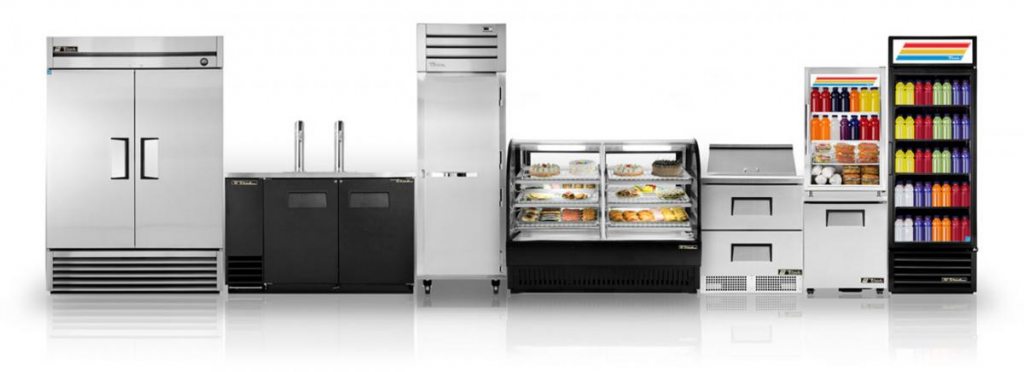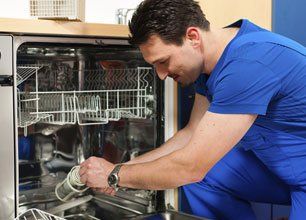When to Call Appliance Repair Oro Valley Dependable Appliance Services: Early Warning Signs You Can’t Ignore
Important Tips for Effective Ref Fixing to Extend Home Appliance Lifespan
When it comes to your refrigerator, correct repair service and upkeep are essential for long life. Recognizing common issues and understanding when to act can make all the distinction.
Understanding Usual Fridge Problems
Fridges are essential in keeping your food fresh, but they can encounter a variety of usual troubles that interrupt their efficiency. One frequent issue is poor cooling. If you observe food ruining quicker than normal, inspect the thermostat setups or think about if the door seals are damaged. One more usual trouble is extreme sound, which can suggest a malfunctioning compressor or a stopping working follower. You could additionally experience water pooling inside or beneath the fridge; this usually results from a blocked defrost drainpipe or a faulty water line. Additionally, if your refrigerator's light isn't functioning, maybe a basic light bulb problem or a problem with the door button. Finally, ice accumulation in the freezer can prevent air movement and cooling effectiveness. Recognizing these problems early can save you time and money in repairs, ensuring your refrigerator runs efficiently and successfully.
Normal Maintenance Practices
To maintain your appliances running smoothly, you need to remain on top of normal upkeep practices. Tidy the condenser coils, check the door seals, and keep track of the temperature level setups to assure peak performance. These basic jobs can save you time and cash on repair services down the line.
Clean Condenser Coils Frequently
Cleaning your condenser coils frequently can greatly improve your device's performance. Dirt and dirt build up on these coils over time, triggering your home appliance to work harder and consume more power. To keep them clean, disconnect your home appliance and meticulously eliminate any kind of safety covers.
Check Door Seals
3 straightforward steps can aid you guarantee your appliance's door seals remain in good condition. Inspect the seals regularly for any kind of cracks, rips, or indications of wear. These damages can cause air leakages, influencing efficiency. Second, tidy the seals using cozy, soapy water to get rid of any type of debris or crud. A tidy seal ensures a limited fit and far better performance. Perform a basic test by closing the door on an item of paper. If you can quickly pull it out without resistance, the seal may require changing. By adhering to these actions, you'll preserve your home appliance's efficiency and long life, conserving you cash on power expenses and repair services over time.
Display Temperature Setups
On a regular basis checking your home appliance's temperature level settings is essential for finest performance and efficiency. Whether you're managing a refrigerator, fridge freezer, or stove, keeping an eye on these settings can protect against several concerns. For refrigerators, aim for temperature levels in between 35 ° F and 38 ° F; for fridges freezer, remain 0 ° F. If the temperature levels are expensive or reduced, your home appliance might work harder, throwing away energy and reducing its life expectancy. Utilize a thermostat to examine these settings on a regular basis, particularly after major changes, like relocating your appliance or readjusting the thermostat. If you discover changes, adjust the settings appropriately and get in touch with the individual handbook for support. By remaining proactive regarding temperature level monitoring, you'll guarantee your appliances run smoothly and last much longer.
Fixing Cooling Concerns
When your fridge isn't cooling down effectively, it can lead to ruined food and wasted money, so resolving the issue without delay is vital. Beginning by inspecting the temperature setups to confirm they're at the suggested degrees, typically around 37 ° F for the fridge and 0 ° F for the freezer. If the setups are correct, inspect the door seals for any voids or damages; a defective seal can enable cozy air to enter.
Following, check out the vents inside the refrigerator and fridge freezer. Verify they're not blocked by food items, as this can disrupt airflow. Pay attention for the compressor; if it's not running or making uncommon noises, it might need attention. Inspect the condenser coils, normally located at the back or base of the device. Dirt and debris can accumulate, causing cooling down problems. Clean them with a vacuum or brush to optimize efficiency. If problems linger, it may be time to call a professional.
Dealing With Water Leak and Ice Accumulation
If you're dealing with water leak or ice build-up in your home appliance, it's crucial to identify the resource of the issue. By pinpointing where the water is originating from, you can avoid further issues and stay clear of costly fixings. Let's discover some effective strategies to tackle these typical issues.
Identify Leak Resources
How can you properly determine the resources of water leak and ice build-up in your appliances? Begin by evaluating the seals and gaskets on your fridge and freezer doors. By methodically examining these locations, you'll pinpoint the resource of the issue, permitting you to take the required actions to fix it and expand your device's life expectancy.
Protect Against Ice Development
To avoid ice development in your appliances, begin by verifying the temperature level settings are ideal. If your refrigerator or freezer is too cold, it can bring about extreme ice accumulation. Examine the door seals consistently; damaged seals can allow cozy air in, causing condensation and ice formation.
Maintain the appliance well-ventilated and avoid overcrowding, as this can obstruct airflow - Dependable Refrigeration & Appliance Repair Service LG Appliance Repair. Consistently thaw your freezer if it does not have an automated defrost attribute.
If you see water leakage, determine and repair any blocked drainage openings, as they can add to ice accumulation. Lastly, clean the coils and verify they're operating effectively to keep peak efficiency. Taking these actions will certainly help extend your device's life expectancy and efficiency.
Addressing Noisy Refrigerator Appears
While it could appear alarming, a loud refrigerator often signifies minor concerns rather than significant breakdowns. Identify the source of the sound. Common offenders consist of the compressor, followers, and water lines. If you hear a buzzing noise, it could be the compressor working hard; this can just be a normal operation audio.
Following, visit look for loose products inside. Occasionally, containers or racks can rattle, producing undesirable sound. Tighten or reposition them to eliminate the audios.
If you observe a clicking sound, it could be the defrost timer. This is commonly harmless but might show it requires inspection.
Lastly, confirm your refrigerator is degree. An out of balance device can produce vibrations and sound. Utilize a degree to inspect, and readjust the feet if required. Attending to these issues immediately can aid keep your fridge's efficiency and extend its lifespan.
When to Change Components vs. Complete Replacement

Consider the expense of repairs versus the home appliance's value. Additionally, if you observe ongoing issues that maintain repeating, it's an indicator that your device has gotten to the end of its life.
Knowing When to Call a Specialist
Just how can you tell when it's time to employ a specialist for device fixing? If you discover unusual noises, smells, or leaks, it's a clear signal that something's wrong. Do not overlook these indicators; they frequently suggest deeper problems. If your device quits functioning completely or often journeys breaker, it's an additional warning.
You should additionally consider your very own comfort level with repair work. If you're not sure about diagnosing the trouble or do not have the right tools, it's best to connect for aid. Keep in mind, attempting complex fixings can result in more damage or even site web safety risks.

Regularly Asked Inquiries
How Typically Should I Clean the Refrigerator Coils?
You must clean your refrigerator coils every six months. This aids keep performance and prevents getting too hot. If you notice too much dust or family pet hair, clean them much more often to guarantee your fridge runs smoothly.

Can I Use Vinegar for Cleaning My Fridge?
Yes, you can use vinegar to clean your fridge! It's an excellent all-natural cleanser that removes odors and spots. Who Repairs Dryers in Oro Valley? Dependable Refrigeration & Appliance Repair Service. Just mix it with water, apply it to surfaces, and wipe down for a fresh, clean fridge
What Temperature level Should My Refrigerator Be Ready To?
You must set your refrigerator to 37 ° F(3 ° C) for perfect food conservation. This temperature level maintains your food fresh while preventing spoilage, guaranteeing your grocery stores last longer and decreasing waste. It's a very easy modification you can make!
Does a Refrigerator Required to Be Leveled?
Yes, your refrigerator requires to be leveled. If it's uneven, it can influence cooling down performance and trigger excess noise. Inspect the leveling legs and readjust them to assure appropriate balance for optimal efficiency.
How Can I Reduce Fridge Power Intake?
To decrease your refrigerator's power consumption, keep it clean and well-ventilated, inspect door seals for leakages, set the temperature level in between 35-38 ° F, and stay clear of overloading it. These steps can considerably decrease your energy bills.